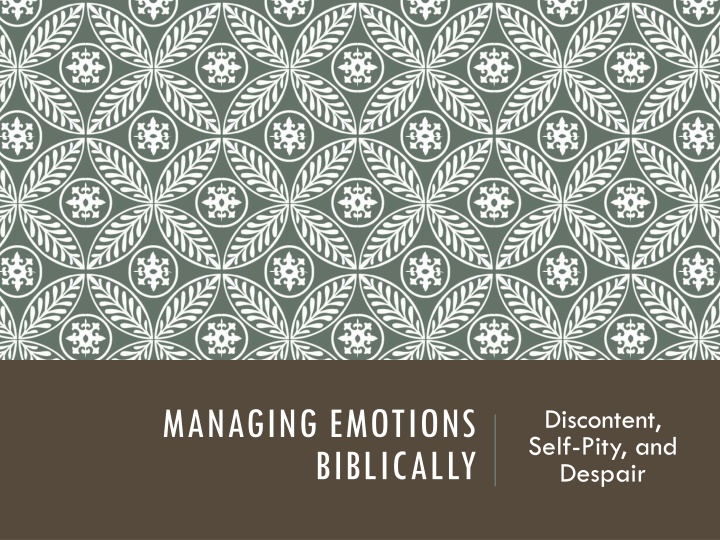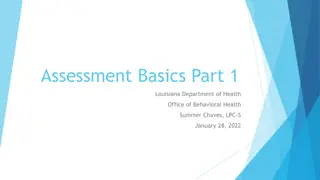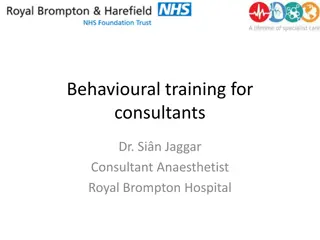
Managing Emotions Biblically: Overcoming Discontent, Self-Pity, and Despair
Explore the definitions of discontent and self-pity, along with their biblical descriptions and solutions, to learn how to cultivate contentment and avoid falling into a mindset of self-indulgence. Discover the importance of focusing on eternal values and stewardship rather than temporary pleasures.
Download Presentation

Please find below an Image/Link to download the presentation.
The content on the website is provided AS IS for your information and personal use only. It may not be sold, licensed, or shared on other websites without obtaining consent from the author. If you encounter any issues during the download, it is possible that the publisher has removed the file from their server.
You are allowed to download the files provided on this website for personal or commercial use, subject to the condition that they are used lawfully. All files are the property of their respective owners.
The content on the website is provided AS IS for your information and personal use only. It may not be sold, licensed, or shared on other websites without obtaining consent from the author.
E N D
Presentation Transcript
MANAGING EMOTIONS BIBLICALLY Discontent, Self-Pity, and Despair
I. DISCONTENT A. Definitions 1. Dictionary Definition - Discontent Not satisfied with what one is or has Wanting more or different A restless desire or craving for something one does not have.
I. DISCONTENT A. Definitions 2. Biblical Description Covetousness An inordinate desire to have more than what God has seen fit to give us. Lou Priolo
I. DISCONTENT B. Explanation of Covetousness 1. Covetousness is the inordinate and sinful desire to have the things that we are convinced will satisfy us or make us happy. 2. The Bible makes it clear that the love of temporal pleasures will damage us.
I. DISCONTENT C. Biblical Solution Contentment 1. Contentment comes from delighting in God more than anything. 2. Contentment thanks God in all circumstances instead of complaining.
I. DISCONTENT 3. We will have to learn how to be content. 4. Contentment focuses on stewardship, not ownership. 5. Contentment focuses on investing in eternally important things.
II. SELF-PITY A. Definitions Self-Pity The act or state of pitying oneself, especially in an exaggerated or self-indulgent manner Thinking sympathetically or sorrowfully about your own suffering, distress, or misfortune, often leading you to find relief or aid from your distress
II. SELF-PITY A. Definitions 2. Biblical Description Lover of Self The Bible calls those who focus inordinately on themselves and their comfort lovers of self, which leads to boasting, arrogance, and lack of self-control.
II. SELF-PITY B. Explanation of Self-Love 1. A love of self will lead to a prideful life lived with a self-focus. 2. A person with a self-focus will hate anything that is hard.
II. SELF-PITY C. Biblical Solution Humility 1. God speaks about the self-diminishing purposes of suffering. 2. God teaches us to see His humbling purpose in the middle of our pain. 3. Contentment allows you to adjust your own desires to fit God s purpose and conditions.
III. DESPAIR A. Definitions Despair The loss of hope; hopelessness To lose, give up, or be without hope
III. DESPAIR A. Definitions 2. Biblical Description Despair / Hopelessness We are reminded that our weaknesses showcase the greatness of God s power.
III. DESPAIR B. Explanation of Hopelessness 1. Despair and hopelessness are the result of believing lies about God and how he operates in our world. 2. Possible causes for despair: Unrelenting Suffering Personal Failure False Hopes
III. DESPAIR C. Biblical Solution Hope and Trust 1. God will never give us more difficulty than we will be able to handle through his strength and empowering.
III. DESPAIR 2. Our greatest need has been provided for through the sacrificial death of Christ on the cross. 3. Because we are able to trust Christ in salvation, we are also able to trust Christ in our trouble. 4. There are real reasons to trust God.
IV. PRACTICAL STEPS FOR GROWTH A. Retrain your Fancy to be more in line with Scripture. B. Work hard to be aware of your own covetousness. C. Ask God to give you a greater love for Him than any other person or thing. D. Look for reasons to be thankful.
IV. PRACTICAL STEPS FOR GROWTH E. Remind yourself that your greatest needs will never be met by any temporal thing. F. Train yourself to think correctly about the way that God deals with you.
IV. PRACTICAL STEPS FOR GROWTH G. Train yourself to need only the true temporal necessities .food, clothing, and shelter. H. Work to develop the spiritual quality of endurance and perseverance, especially when life is hard. I. Learn to ask for and graciously receive the help of God and others.






















